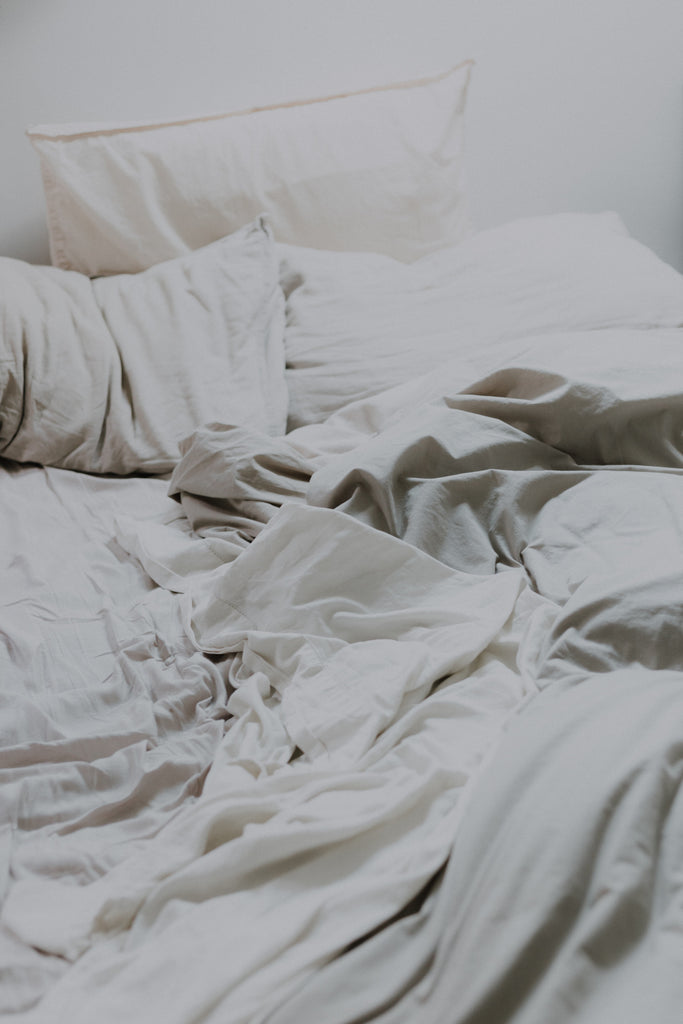Who knew there was a day dedicated to sleeping? I’m here to let you know that January the 3rd is known as the festival of sleep day. It’s well known that after the craziness of Christmas and New year we could probably all do with a bit of a boost and a good night’s sleep. Sarah the Founder of Little Box of Joy is currently recuperating from Brain Radiotherapy and has credited sleep as one of the reasons she is healing so well. She tries to get a minimum of 8-10 hours of solid sleep per night and a daytime nap, if possible (not always possible when children are home), Back to school next week, so 5 more days of chaos, but trying to find some calm in the chaos.
It’s recommended that a women and men should have between 7 – 9 hours of sleep per night, with teenagers and younger children needing more. This in turn helps with your health. Sleep is essential for human health and helps the brain and body to recover and even develop within younger children.
Here’s some great reasons why getting a good night’s sleep is good for your health.
- During sleep, your sympathetic nervous system, which controls your fight or flight response gets a chance to relax. Past studies have shownthat when we’re deprived of sleep, our sympathetic nervous system activity is on high alert, which is mirrored by an increase in blood pressure. Scientists studying coronary disease are investigating whether there’s a link between decreased sleep durations and an increased risk of heart disease.
- During each night of sleep, hormones are known to flood your body. There’s a number of hormones that are released whilst you sleep, all with different purposes, Melatonin gets released by the pineal gland, and controls your sleep patterns. Levels increase at night time, making you feel tired and ready to sleep. While you’re sleeping, your pituitary gland releases a growth hormone, which helps your body to grow and repair itself.
- Don’t think that once you are asleep your brain stops working, in fact it’s quite the opposite. Your brain is actually quite busy while you sleep, storing and sorting information from the day. This process is particularly important for creating and storing long term memories, as your brain consolidates all the information it’s picked up during the day and files it away for later use.
- Cortisol which is also known as the stress hormone decreases during the first few hours of sleep before rising to peak soon after you wake up. This helps makes you feel perky when you wake up and switches on your appetite.
- Whilst you sleep, you cycle through periods of non-rapid eye movement sleep (NREM) and rapid eye movement sleep (REM). It’s during REM sleep that we have the most vivid dreams. During this stage, your muscles are temporarily paralysed, meaning you can’t move. Some scientists think this might be so that you don’t physically act out your dreams. During a normal night of sleep each person it’s normal to go through 3 to 5 sleep cycles. Each sleep cycle lasts between 70 – 120 minutes per cycle.
- Whilst you are sleeping your immune system releases a type of small proteins called cytokines. If you’re sick or injured, these cytokines help your body fight inflammation, infection and trauma. Without enough sleep, your immune system might not be able to function at its best. I have learnt from my recent experience that sleeping helps with the healing process.
- Your body does a lot of important work while you are sleeping which is vital for both physical and mental health and wellbeing.
If you have problems switching off when trying to sleep and your mind is spinning from all the things you need to do. Try the following tips to help you get a restful night’s sleep.
- Try and avoid blue light (Phones, tablets, computers etc) for approx. 2 -3 hours before you go to sleep. If you use your phone as an alarm clock like lots of people think about buying a separate alarm clock so your phone can be turned off at bedtime.
- Use a pillow or room mist – I find Lavender works well for myself and sends me into quite a deep sleep. I tend to spray all over my pillow or dab some on my pulse points, wrist and temples. I’m also a huge fan of our Scentered Sleep well therapy balm which is a great sleep aid if you suffer from anxiety, night restlessness or broken sleep.
- Try reading a book before bed, nothing to complex but it helps to distract your mind and often ends in a peaceful slumber.
- Using a silk eye mask is proven to improve your quality of sleep and reduces stress and prevents exposure to harmful lights.
- Try and avoid caffeine before you turn in for the night. The most obvious effect of the stimulant is that it can make it hard for you to fall asleep. If you’re one of those people who like a hot drink in the evening try and replace it with a Chamomile tea, decaffeinated green tea or warm milk instead.
- Have a glass of water near your bedside – handy to quench your thirst if you wake in the middle of the night without having to visit the kitchen or bathroom which is more likely to interrupt your sleep pattern.
- A study found that having a warm bath about 90 minutes before you would normally go to bed can help you fall asleep quicker – add some relaxing lavender infused bath salts or oils for that restful sleep.
- Treat yourself to a pair of Alpaca socks, especially when the weather outside is a little chilly, they are breathable and will keep your feet lovely and snug without overheating. Plus, you can colour coordinate them with your pyjamas or nightwear.
- Last but not least is treat yourself or someone who struggles with sleep to a Spacemask or a heated eye mask. One of our best-selling products and will almost guarantee you a decent night’s sleep.
Above all a good night’s sleep is so important for us as humans and should be a priority for most. I didn’t make many new year’s resolutions this year but getting more quality sleep is one of them.
If you’ve got any tips for good sleep you would like to share, please post in the comments below.
Wishing you a restful night’s sleep, sweet dreams.


Leave a comment